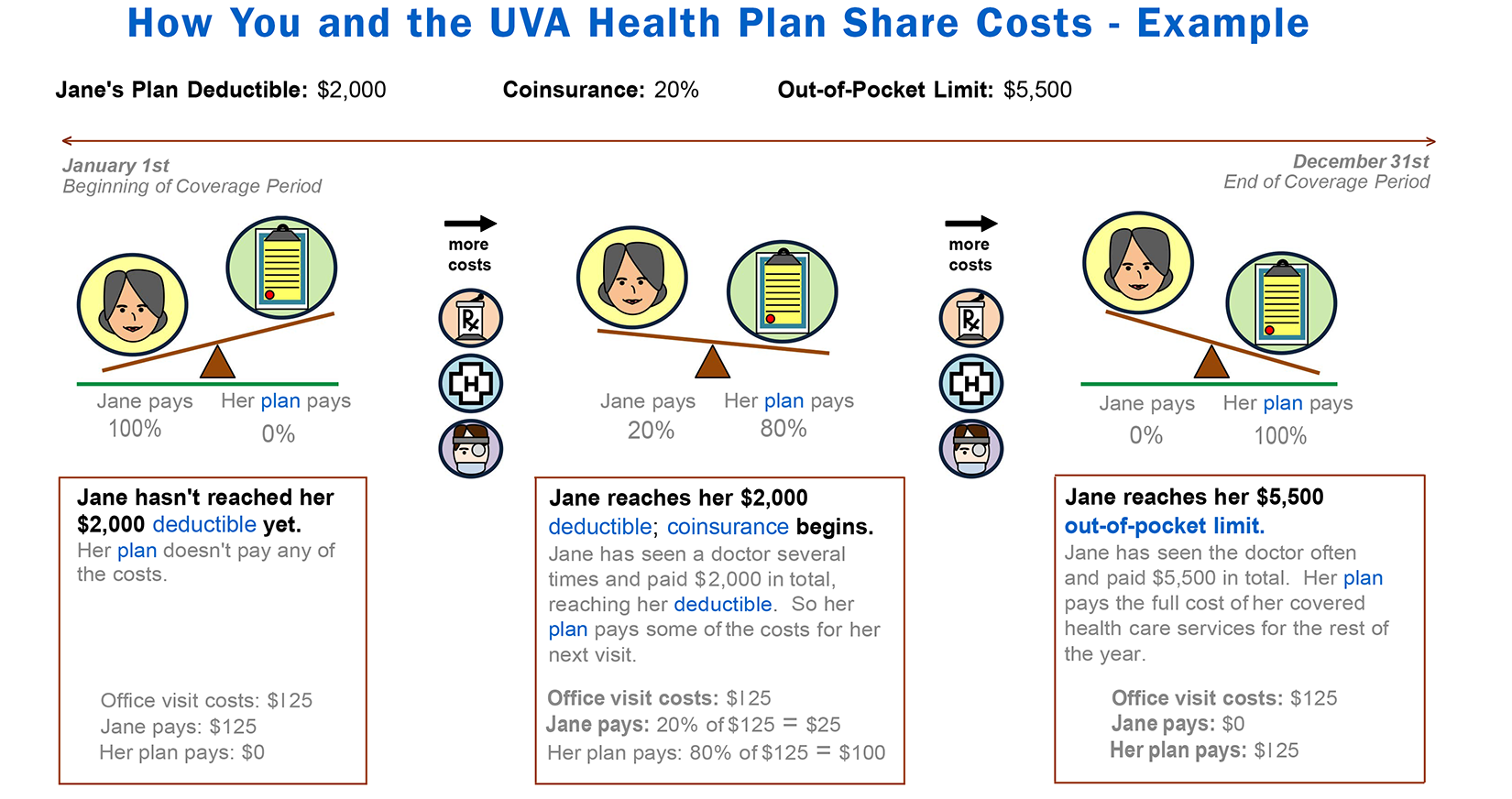Health Plan Medical Scenarios
You told us you wanted to know the costs for common medical procedures and how they play out across the three health plan options, in order to help you better compare values.
We have heard you! This year, you can see six common medical scenarios that UVA employees experience, according to Aetna. Each situation provides estimates for what you would pay for each service (keep in mind that the real costs depend on the services you receive and how the doctor or health care facility bills Aetna). The scenarios use different tiers: employee only, employee + spouse, employee + child, and family.
Annual Premiums Included
To see the bigger picture, you'll also want to consider your annual premium. If each scenario was the ONLY medical event you had in a year, you can see what your total estimated out-of-pocket cost would be for the year. The premiums used in these scenarios apply to full-time faculty, classified staff, Medical Center team members, post-doctoral research associates, senior professional research staff, and University staff.
Create Your Own Scenarios
Of course, most people will touch the health care system more than once in a year. To find out what multiple medical events would cost you in a year for each of the three health plan options, the Aetna One Advocate team can provide you with specific cost estimates based on your own circumstances. See their contact information at the bottom of this page and also on the right sidebar.
Aetna Tools: Visit the Aetna website and click on “Log in/Register” to access these resources:
- Aetna Navigator: Offers a Find Care & Pricing tool option. This compares costs to give you real-time, personalized estimates and provides average in-network and out-of-network costs
- Custom Doctor Find: Confirms whether providers are in-network
- Aetna Institute of Quality List: Lists IOQ facilities
How You Share Costs With the UVA Health Plan
The below illustration explains how your health care out-of-pocket costs change as you reach your deductible and your out-of-pocket limit:
